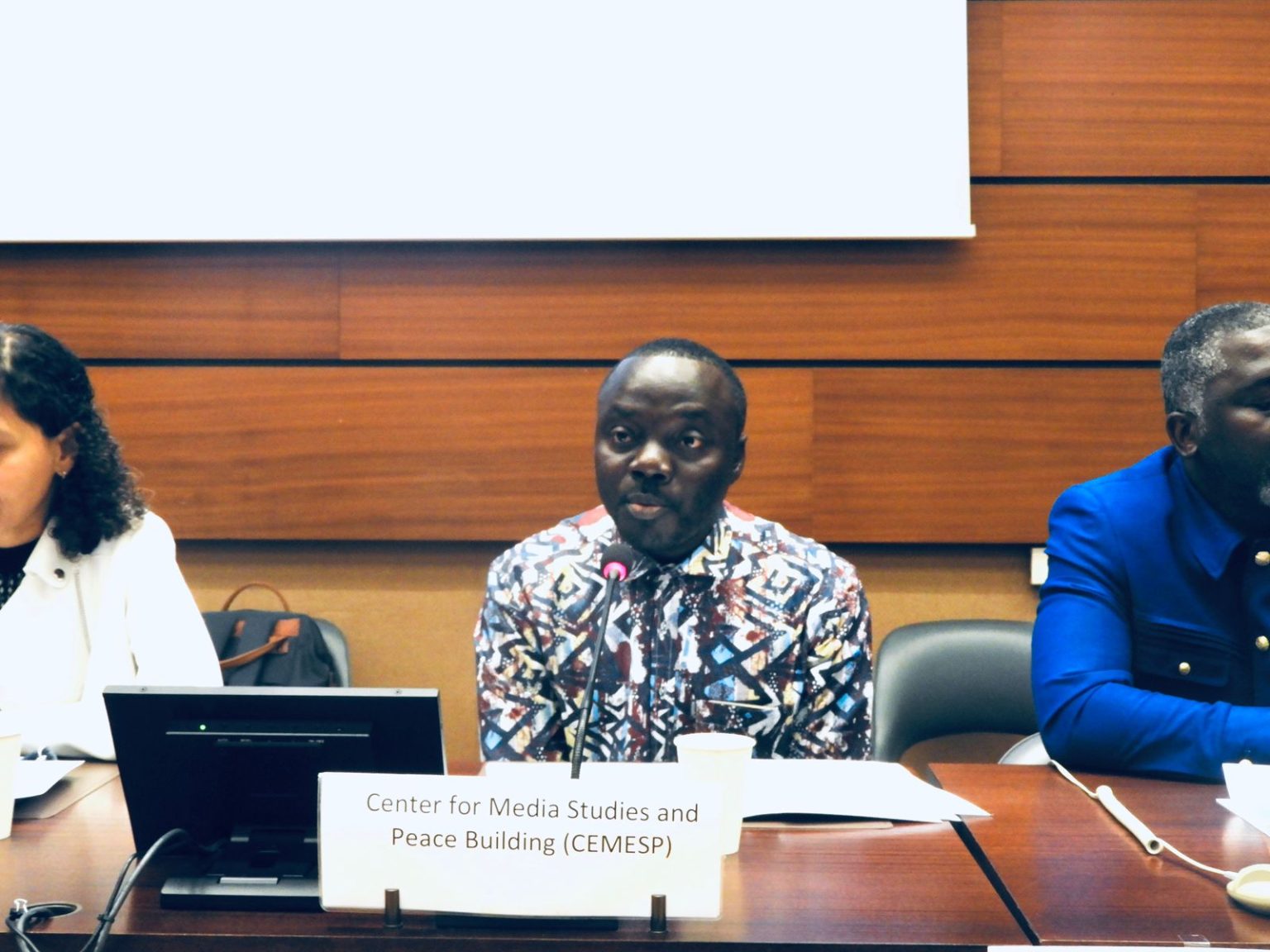Liberia’s path towards robust democratic governance hinges on pivotal reforms across media, digital landscapes, and public accountability mechanisms, as highlighted by Liberian journalist and media development practitioner Wremongar Joe during the Universal Periodic Review (UPR) pre-sessions in Geneva. Joe’s address, representing the Center for Media Studies and Peacebuilding (CEMESP), underscored three critical areas requiring immediate attention from the international community: strengthening digital rights, fostering transparency in public institutions, and bolstering press freedom and the safety of journalists. These interconnected facets form the bedrock of a thriving democracy and demand concerted action to ensure Liberia’s continued progress.
The digital age necessitates a robust legal framework that protects freedoms while mitigating risks. Joe’s first recommendation centered on the urgent need for Liberia to adopt comprehensive legislation encompassing internet freedom, data protection, and cybersecurity. This legal framework must safeguard citizens’ rights online while ensuring a secure digital environment. Moreover, a truly independent broadcast regulator is essential to ensure impartiality and prevent the manipulation of information. Transforming state radio into a genuine public service broadcaster, serving all Liberians rather than solely the government, is paramount for fostering informed citizenry and enabling diverse voices to be heard. This shift would represent a significant stride towards a more inclusive and democratic media landscape.
Transparency and accountability form the cornerstone of public trust and good governance. Joe’s second recommendation addressed the pervasive lack of transparency within Liberia’s public institutions. While Liberia boasts a Freedom of Information Act, its practical implementation remains severely hampered. Public officials frequently disregard requests for information, including spending records and concession agreements, effectively rendering the law toothless. This culture of secrecy breeds mistrust and obstructs citizens’ ability to hold their government accountable. Overcoming this ingrained resistance to information disclosure requires a fundamental shift in mindset among public officials, coupled with robust enforcement mechanisms to ensure compliance with the Freedom of Information Act.
A free and unfettered press is indispensable for a healthy democracy. Joe’s third recommendation focused on the precarious situation of journalists in Liberia, who face harassment, intimidation, and even criminal prosecution for carrying out their duties. While the Kamara Abdullah Kamara (KAK) Act of Press Freedom marked a positive step towards decriminalizing certain speech offenses, its impact remains limited. Journalists and activists continue to endure surveillance and intimidation, highlighting the gap between legal frameworks and practical realities. Moving beyond legislative changes, genuine protection for journalists necessitates strong political will and sustained commitment from the government to uphold press freedom.
Effectively addressing these challenges requires a multi-pronged approach. Firstly, enacting and enforcing comprehensive legislation on internet freedom, data protection, and cybersecurity is paramount. This legal framework must strike a balance between protecting online freedoms and safeguarding against potential abuses. Secondly, empowering an independent broadcast regulator and transforming state radio into a genuine public service broadcaster will foster a more balanced and representative media landscape. Thirdly, a cultural shift towards transparency and accountability within public institutions is crucial. This requires strengthening the implementation of the Freedom of Information Act through robust enforcement mechanisms and fostering a culture of proactive information disclosure. Lastly, ensuring the safety and security of journalists is essential. This involves not only upholding the KAK Act but also actively combating harassment, intimidation, and politically motivated prosecutions.
Joe’s engagement with representatives of UN permanent missions in Geneva, including Belgium and Japan, underscores the importance of international collaboration in promoting human rights and democratic governance in Liberia. These bilateral meetings provide crucial platforms for sharing firsthand accounts of the challenges on the ground and mobilizing international support for necessary reforms. The support from the Small Media Foundation in facilitating Joe’s participation in the UPR pre-sessions further highlights the vital role of international partnerships in advancing media freedom and digital rights globally. The collective efforts of national actors, international organizations, and civil society are essential for fostering a more just and democratic future for Liberia.














